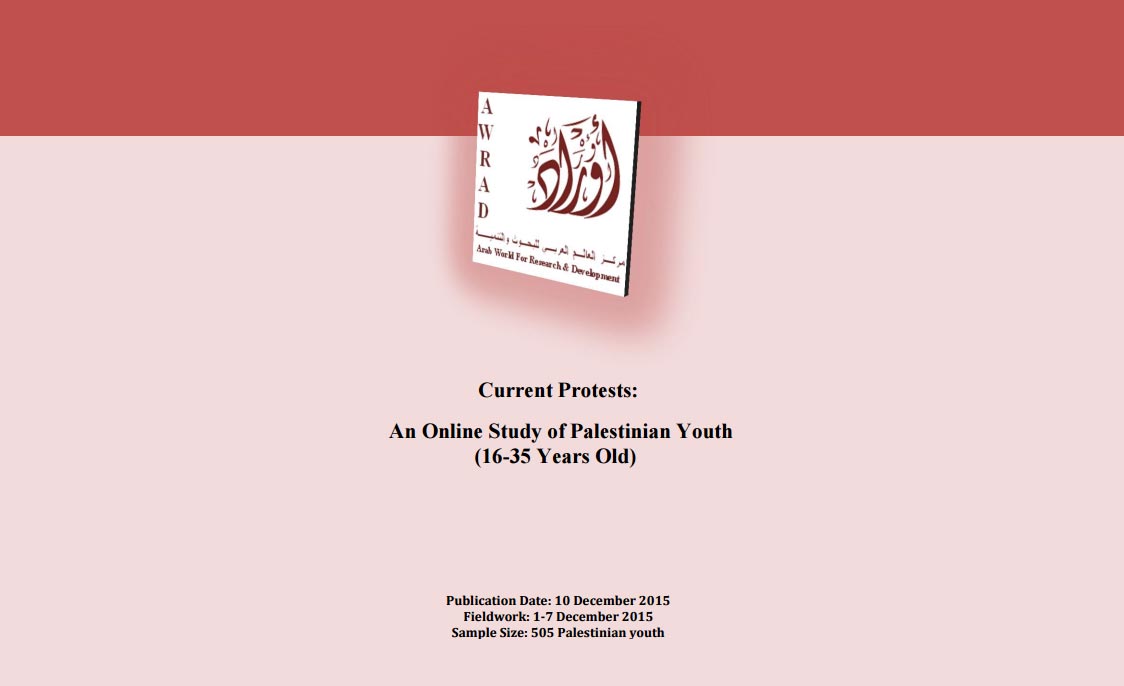Introduction: From December 1-7, AWRAD conducted a specialized public opinion survey targeting Palestinian youth. The goal of this survey was to assess current perceptions regarding the wave of protests that has occurred in the West Bank and Gaza Strip (WBG) since September 2015, as well as a variety of other themes related to the lives of youth. The poll targeted 505 Palestinian men and women between the ages of 16 and 35, both inside and outside of the WBG.
Highlights:
- 86 percent of youth believe there are insufficient opportunities for growth and 80 percent believe that participation of youth in national decision-making processes is unsatisfactory.
- The majority of youth are active to some degree in following the protests and demonstrations on social media.
- Youth largely believe that the current protests are non-partisan, and that they are participated in by only a small cross-section of society.
- Frustration with the failure of the peace process and the continuing occupation is believed to be the main cause of the current protests, followed by dissatisfaction with Hamas and Fatah, and youth expressing their patriotism.
- Youth believe the current protests will continue for some time, at the current intensity, though they are skeptical that anything substantive will be achieved. A majority of youth supports the protests, regardless.
- The majority of youth are critical of the responses of all major parties and organizations to the current situation, though they are most upset with the reaction of the PA.
- Significant numbers of youth in East Jerusalem and the West Bank report that they or their family members have had negative experiences with Israelis (soldiers or settlers) since the start of the recent round of clashes.
- At the present time, the majority of youth support attacks against Israeli soldiers and settlers. They are more divided, however, when it comes to supporting attacks on civilians within the Green Line.
- At the present time, a majority of youth identify armed struggle as the best means to end the occupation.









